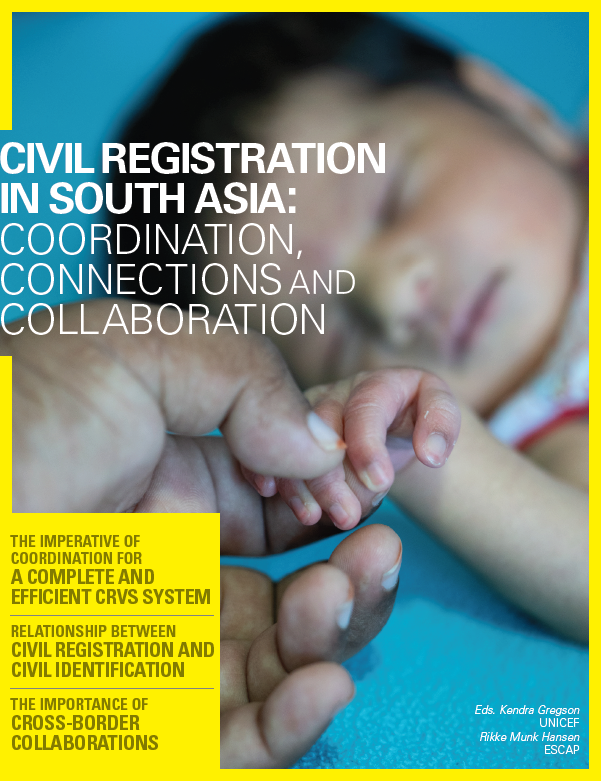Civil registration is a priority on the policy agenda of countries across South Asia. The governments in the region are committed to achieving the Sustainable Development Goals (SDGs), including complete birth registration and 80 per cent death registration (SDG targets 16.9 and 17.19). They also declared 2015—2024 the decade for civil registration and vital statistics. To improve civil registration over this time period,1 all countries are developing plans and targets to enhance the registration of vital events, in line with a Regional Action Plan to “Get Every One in the Picture”. These commitments to obtain and maintain complete registration of all types of events present new responsibilities, opportunities and challenges.
The United Nations Children’s Fund (UNICEF) in South Asia and the United Nations Economic and Social Commission for Asia-Pacific (ESCAP) jointly organized a meeting of professionals engaged in civil registration in South Asia from 24 to 25 July 2018 in Kathmandu, Nepal. The group comprised 22 government experts from Afghanistan, Bangladesh, Bhutan, Maldives, Nepal, Pakistan and Sri Lanka, as well as representatives from UNICEF, ESCAP, UNHCR, UNSD and the World Bank. In addition, government representatives from Namibia, New Zealand and Thailand, and four independent consultants attended.
The First Meeting of the Civil Registration Professionals of South Asia, as it was titled, discussed three common areas of concern in all countries in South Asia — national coordination, cross-border collaboration, and the relationship between civil registration and civil identification. The participants recognized that the interdependent nature of civil registration demands systematic and active coordination between the civil registration office and ministries and departments that directly or indirectly support or benefit from the system. Cross-border collaboration is also required to ensure universal registration. Collaboration presents challenges, including to data security, and often requires adjustments to legal frameworks. However, the benefits of cross-border collaboration in terms of protecting human rights and delivering better services to resident and migrant populations fully justify efforts to overcome such challenges.
With the need for a secure and efficient identification management system, the meeting discussed the relationship between, and uniqueness of, civil registration and civil identification systems. Both are primary registers as they provide the institutional anchoring for the verification and authentication of identities through the identity credentials they issue. Contrary to civil identification systems, civil registration systems are considered foundational as well as primary as they are needed to establish and maintain any other type of identification management system.
This publication includes the three background papers that formed the basis for the discussion during the meeting, as well as the meeting conclusions and recommendations.


